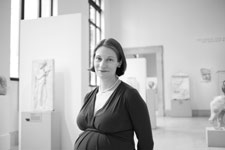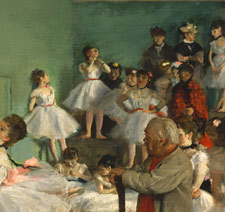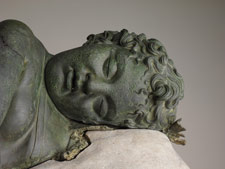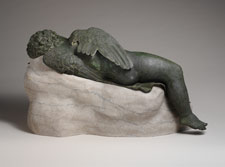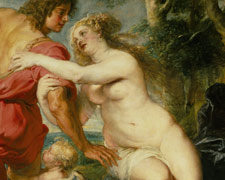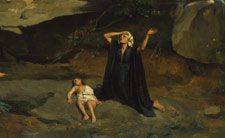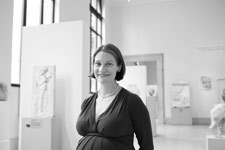New Connections appear every Wednesday. Sign up for a reminder.
Lecturer Jean Sorabella finds inspiration in idealized depictions of mothers.
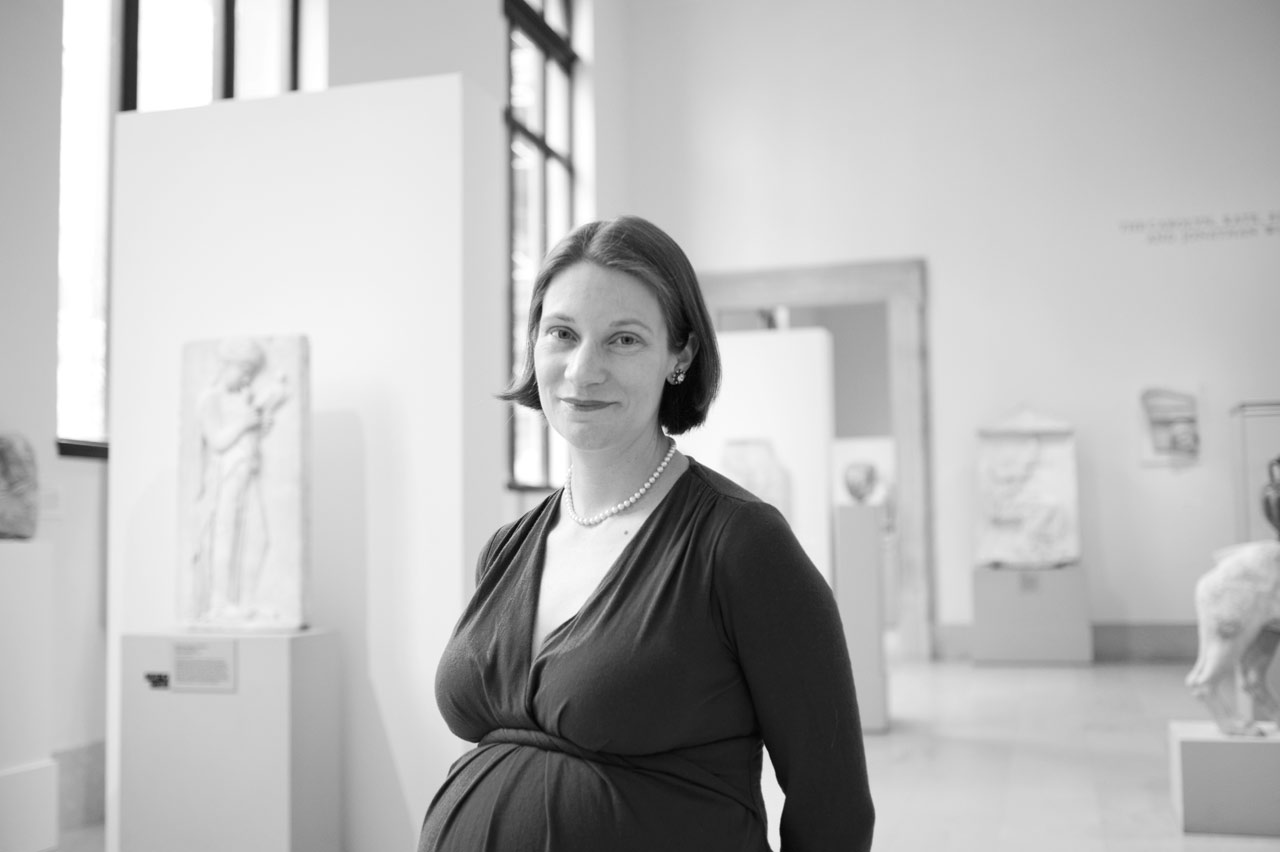 1280852
1280852 7831024
7831024 9441024
9441024 10891024
10891024 7841024
7841024 8771024
8771024 12801022
12801022 8271024
8271024 7401024
7401024 7891024
7891024 5831024
5831024 1280936
1280936 1280947
1280947 1280960
1280960 1280947
1280947 12661024
12661024 12801021
12801021 1280938
1280938 1280785
1280785 8671024
8671024 1280990
1280990 9061024
9061024 7721024
7721024 1280852
1280852
I'm Jean Sorabella, and I'm a lecturer here at the Museum. I'm going to talk about motherhood
a subject very dear to my heart. It's a definition of a major part of my time right now.
As I have returned to some of the objects that I liked best as a child, like the Degas dancers, I see that in addition to all of the dancers there are, concealed in the back, these
mothers. So the mothers were sitting there almost like anticipations of the future that I've only really come to discover now.
In art, when you depict a mother, it seems she'd better be doing her job well, and she's almost an ideal for mothers.
She makes it look so easy, and she's never, you know, punishing the Christ child, or giving him a time-out, or you know, off exasperated in the corner. And in a way it's really nice to see
those images, because they give me, anyway, this chance to be still with the things that are the most peculiar to motherhood. And then
when I had my little son, in particular, I thought about these pictures all the time as though I were, in a way, living them in a way I had never imagined that I might.
Only from time to time do I see an image where it really seems to suggest that a mother has any work to do. And I think when I come to the museum
it's lovely to see all of these children that are in a way cared for by themselves. You know, little, little children who are without
runny noses, without whining, without trying to keep their bedtimes far away, where you have
two siblings relating to one another so harmoniously. I have, at the moment, two children. If I could see them together like that every day I would feel so happy, and the times when I actually do see them looking like that are sadly few at the moment.
One image I remember looking at a lot before I had any children is the Sleeping Eros. And something I loved about it was how lifelike a portrayal of a sleeping child it is. I'm sorry to report that my daughter would never go to sleep on a rock
and my son would never sleep on a rock. They need their blankey, they need their crib. So, in a way, I feel like this statue is a weird kind of wish fulfillment. On the other side, though
it's Eros. It's not just a baby. And the genius of the Greeks in imagining desire as a baby shows very clearly where desire leads.
One of my favorite mothers is the wonderful Venus. And I think that there are lots of Venuses that don't show any trace of that physical aspect of motherhood, but this Venus does and I love that about her.
In all of her voluptuous perfection, she is in no way a maidenly figure, and she's here nude. And Rubens is so good at making the mother look desirable.
I just reread the biblical story of Ishmael, and it is so incredibly moving. I guess Hagar, the mother, and her only, and it seems very beloved son, Ishmael, have been chased out into the wilderness.
And in the biblical story, Hagar places him under a bush, she goes a long way away, she's run out of water and thinks he's going to die and says, "I don't want to see this child die." And that's every mother's worst nightmare, really
that your child won't survive you, or that your child will suffer. And when I put myself into these scenarios and try to imagine
what these mothers must be suffering, then all the little concerns of everyday motherhood really pale.
To me, motherhood is a tremendous chance to have a wonderful relationship with one's child
actually to produce children, to shape children for the future. That's a huge responsibility and a great pleasure
on the other hand, terribly scary.
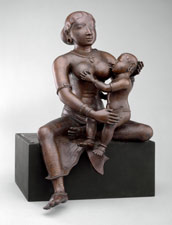 |
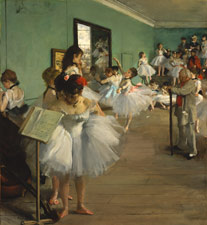 |
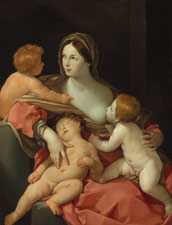 |
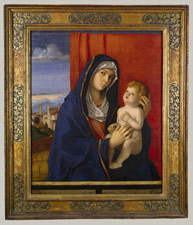 |
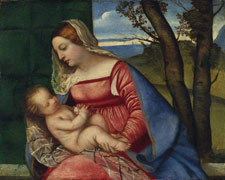 |
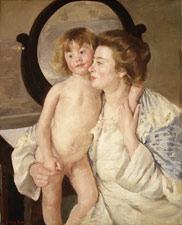 |
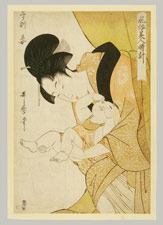 |
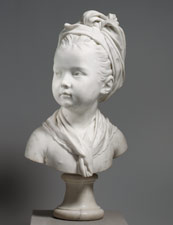 |
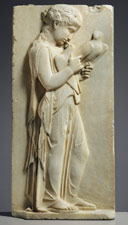 |
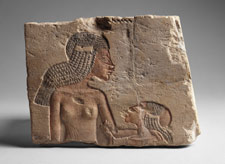 |
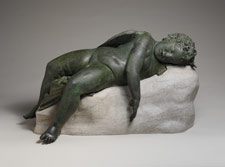 |
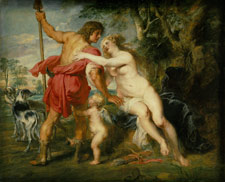 |
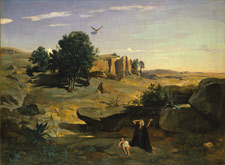 |
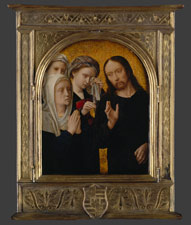 |
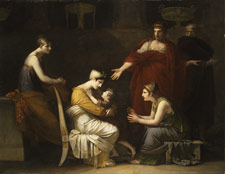 |
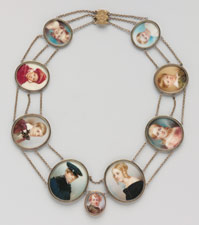 |
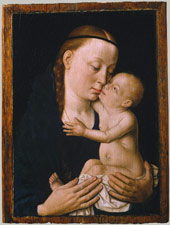 |
Works of art in order of appearanceLast Updated: June 22, 2015. Not all works of art in the Museum's collection may be on view on a particular day. For the most accurate location information, please check this page on the day of your visit. |
||
 |
Krishna's Foster-Mother Yashoda with the Infant Krishna Chola period, early 12th century India (Tamil Nadu) Copper alloy Purchase, Lita Annenberg Hazen Charitable Trust Gift, in honor of Cynthia Polsky and Leon Bernard Polsky, 1982 (1982.220.8) More information: The Collection Online Not on view
|
 Asian ArtSecond Floor
Asian ArtSecond Floor |
 |
The Dance Class 1874 Edgar Degas (French) Oil on canvas Bequest of Mrs. Harry Payne Bingham, 1986 (1987.47.1) More information: The Collection Online Not on view
|
 European PaintingsSecond Floor
European PaintingsSecond Floor |
 |
Charity More information: The Collection Online Not on view
|
 European PaintingsSecond Floor
European PaintingsSecond Floor |
 |
Madonna and Child probably late 1480s Giovanni Bellini (Italian, Venetian) Oil on wood Rogers Fund, 1908 (08.183.1) More information: The Collection Online Not on view
|
 European PaintingsSecond Floor
European PaintingsSecond Floor |
 |
Madonna and Child ca. 1510 Titian (Tiziano Vecellio) (Italian) Oil on wood The Jules Bache Collection, 1949 (49.7.15) More information: The Collection Online Not on view
|
 European PaintingsSecond Floor
European PaintingsSecond Floor |
 |
Mother and Child (The Oval Mirror) ca. 1889 Mary Cassatt (American) Oil on canvas H. O. Havemeyer Collection, Bequest of Mrs. H. O. Havemeyer, 1929 (29.100.47) More information: The Collection Online Not on view
|
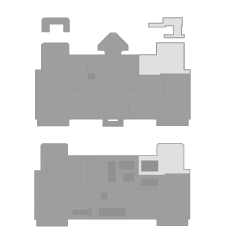 American Paintings and SculptureFirst and Second Floors
American Paintings and SculptureFirst and Second Floors |
 |
Midnight: The Hours of the Rat; Mother and Sleepy Child Edo period, ca. 1790 Kitagawa Utamaro (Japanese) Polychrome woodblock print Rogers Fund, 1922 (JP1278) More information: The Collection Online Not on view
|
 Asian ArtSecond Floor
Asian ArtSecond Floor |
 |
Louise Brongniart (1772–1845) 18th century (after a model of 1777) After Jean-Antoine Houdon (French) French (Paris) Marble Bequest of Benjamin Altman, 1913 (14.40.670) More information: The Collection Online Not on view
|
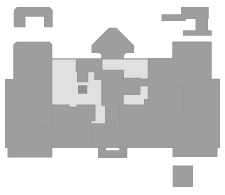 European Sculpture and Decorative ArtsFirst Floor
European Sculpture and Decorative ArtsFirst Floor |
 |
Grave stele of a little girl ca. 450–440 b.c. Greek Parian marble Fletcher Fund, 1927 (27.45) More information: The Collection Online Not on view
|
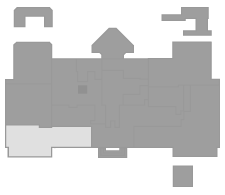 Greek and Roman ArtFirst Floor and Mezzanine
Greek and Roman ArtFirst Floor and Mezzanine |
 |
Two Princesses New Kingdom, Dynasty 18, reign of Akhenaten, ca. 1349–1336 b.c. Egyptian Limestone with remains of paint Gift of Norbert Schimmel, 1985 (1985.328.6) More information: The Collection Online Not on view
|
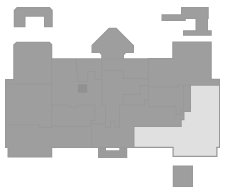 Egyptian ArtFirst Floor
Egyptian ArtFirst Floor |
 |
Statue of Eros sleeping 3rd century b.c.–early 1st century a.d.; Hellenistic or Augustan Greek or Roman Bronze Rogers Fund, 1943 (43.11.4) More information: The Collection Online Not on view
|
 Greek and Roman ArtFirst Floor and Mezzanine
Greek and Roman ArtFirst Floor and Mezzanine |
 |
Venus and Adonis mid- or late 1630s Peter Paul Rubens (Flemish) Oil on canvas Gift of Harry Payne Bingham, 1937 (37.162) More information: The Collection Online Not on view
|
 European PaintingsSecond Floor
European PaintingsSecond Floor |
 |
Hagar in the Wilderness More information: The Collection Online Not on view
|
 European PaintingsSecond Floor
European PaintingsSecond Floor |
 |
Christ Taking Leave of His Mother possibly the right wing of a diptych, ca. 1500 Gerard David (Netherlandish) Oil on wood Bequest of Benjamin Altman, 1913 (14.40.636) More information: The Collection Online Not on view
|
 European PaintingsSecond Floor
European PaintingsSecond Floor |
 |
Andromache and Astyanax 1814–24 Pierre-Paul Prud'hon (French) Oil on canvas Bequest of Collis P. Huntington, 1900 (25.110.14) More information: The Collection Online Not on view
|
 European PaintingsSecond Floor
European PaintingsSecond Floor |
 |
A Mother's Pearls (Portraits of the Artist's Children) 1841 Thomas Seir Cummings (American) Watercolor on ivory L. 17 1/2 in. (44.5 cm) Gift of Mrs. Richard B. Hartshorne and Miss Fanny S. Cummings (through Miss Estelle Hartshorne), 1928 (28.148.1) More information: The Collection Online Not on view
|
 American Paintings and SculptureFirst and Second Floors
American Paintings and SculptureFirst and Second Floors |
 |
Virgin and Child ca. 1455–60 Dieric Bouts (Netherlandish) Oil on wood Theodore M. Davis Collection, Bequest of Theodore M. Davis, 1915 (30.95.280) More information: The Collection Online Not on view
|
 European PaintingsSecond Floor
European PaintingsSecond Floor |
© 2011 The Metropolitan Museum of Art |
||
